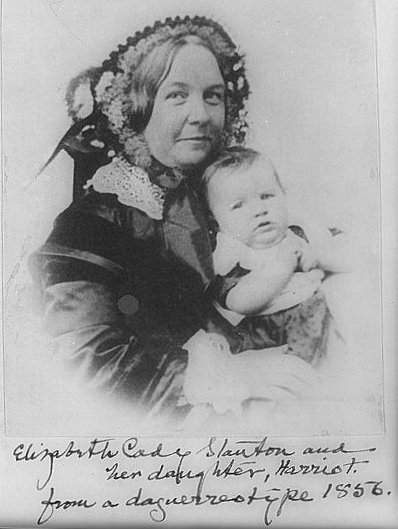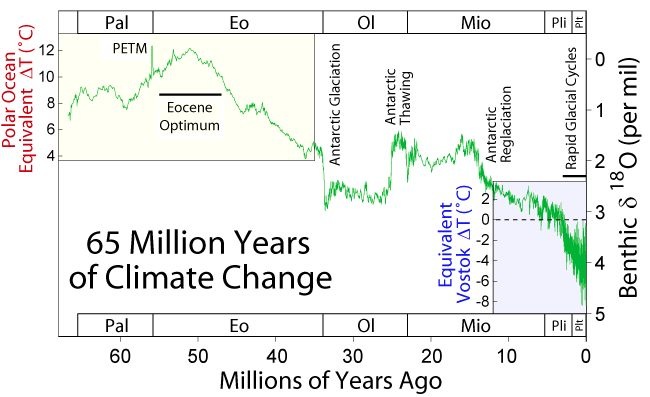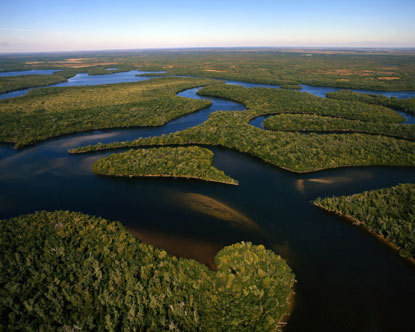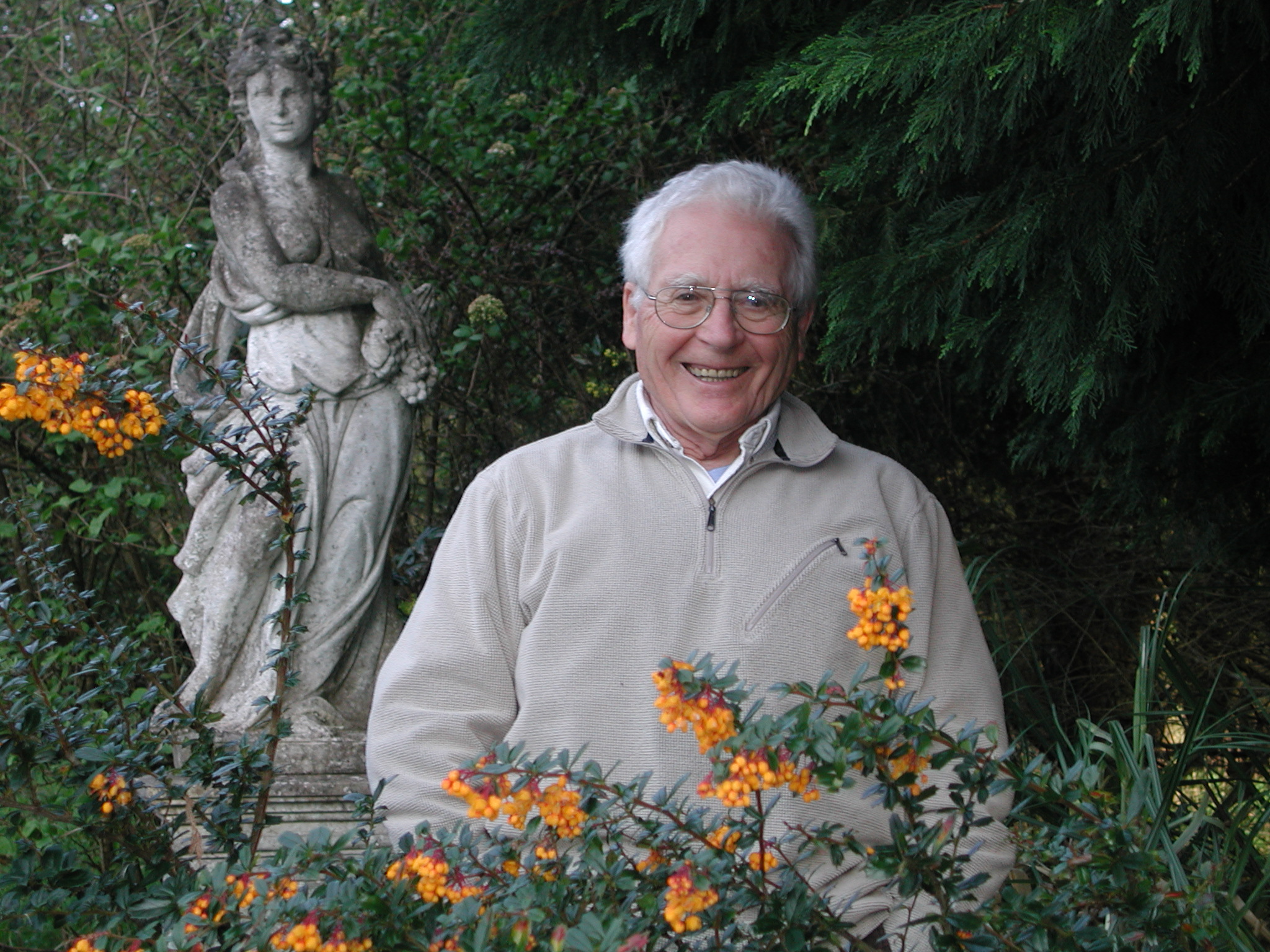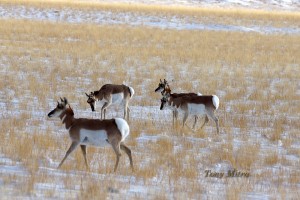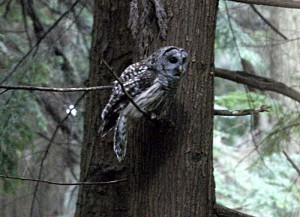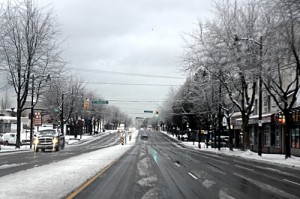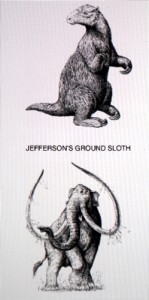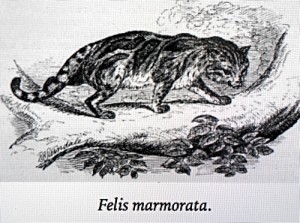If nagged at Neil that he had not mentioned Karen, to Mabel. In all practical purpose, he and Mabel were sort of going steady. They were not living together, just yet. But, other than that technicality, there were an item, he supposed.
And yet, he was, on occasion, meeting up Karen, the single mother from his neighborhood, time to time. Today was one such occasion. Sure, he had not planned it. He had a long day walking around in the bushes by the dyke, looking for warblers, kinglets, larks and buntings. His legs felt tired and his throat felt thirsty. He had quenched his thirst with a bottled lemonade in a gas station. And now, he was heading towards the book store, hoping to pick up a magazine or something to read, and then sit down at the attached coffee shop. But who would he see on the road if not Karen? She too was heading the same way. Apparently, she needed to pick up something at the store next door to the book store, and was otherwise free. Her daughter was not with her. Neil had stopped his car and was talking with her. She ended up getting in his car so he could drop her off at her store while he walked into the book store next door.
She joined him there, and, as Neil could guess, they were going to spend the next hour, or two, together. Sure, it was a chance encounter, and in a public place.
But, it nagged him. Karen had a matured calmness and yet a refreshingly feminine and compassionate way about her that was rather attractive. She was a bleeding heart liberal and often joined protest marches for this or that.
Neil decided he would call Mabel up and tell her about the three occasions where he ended up spending time with Karen, two of them now without her daughter present. He hoped Mabel would take it for what it was, and not make too much of it. Neil, meanwhile, was not sure himself what exactly it was, if anything, between himself and Karen. Its not lime they were secret lovers or something!
Inside the book store, they ended up at the biography section, instead of the magazine corner. The biography section was at the back of the large book store, diametrically opposite to the coffee shop and the adjacent magazine racks.
Karen flipped through a few books. She had picked up a box that carried the picture of Queen Elisabeth II, opened it and flipped through the large and glossy book. This book, and some of the others, were displayed prominently on a table in front of the racks. A prominent spot on the table was occupied by a recent biography of Steve Jobs.
Neil glanced at the book racks of biographies. They appeared to be arranged alphabetically. Aristotle was placed next to Mohammad Ali, Louis Armstrong, Jennifer Anniston and Pamela Anderson. He almost picked up Aristotle, but then thought better of it and let his glance sweep across the racks. He remembered Aristotle as a Greek philosopher that had thinning hair and a good looking beard. A contemplative man, his writings perhaps laid the foundation of western philosophy and covered issues such as morality, science, and even metaphysics. He remembered Armstrong as a great jazz musician with a very interesting face with bulging eyes.
He was not in the right frame, to read biographies of any of them.
After ‘A’ there was ‘B’. Alexander Graham Bell squeezed in with Lucille Ball. Neil thought how it might have been if Graham bell used Lucille Ball as a model for advertising his telephones. The thought made him smile. He could think of a few more names with ‘B’, such as Babcock, Babbit, and Baber. But there were no books on them.
For ‘C’, Cleopatra, Bill Clinton, Winston Churchill, Fidel Castro, Tom Cruise and Christopher Columbus shared the same biographical pigeon hole. Perhaps an imaginary Clinton of the present could have an affair with Cleopatra of the past, for the sake of world peace. The couple could have been blessed by Castro, overlooked by Columbus, and acted on by Tom Cruise ?
He wondered if he might ask Karen for famous last names she remembered that started with ‘B’, and hint at Cabot, Cardigan, or even Caesar. But he thought better of it.
Karen put down the box on the queen and picked up another, on Elisabeth Taylor. Neil’s thoughts drifted to the time when he had seen the movie “Cleopatra” with Liz Taylor in the lead role and Richard Burton playing Mark Anthony. Charlton Heston was Caesar. Nice movie. He was young those days, and did not know that Cleopatra was not really an Egyptian princess as much as she was a princess ruling Egypt.
But Karen was a bleeding heart liberal and a feminist more than she was a woman in awe of glamor, Neil suspected. Soon enough, she had picked up another book on Elizabeth Cady Stanton and the contribution of women in the abolition movement as well as an early women’s rights activist.
Neil knew a bit about her, but not too much. He looked over her shoulder at the book too. There was a picture of Ms Stanton. Karen noted Neil too was looking at the book. “She was one of my early heroines”.
“Hmm.. Am not surprised. I haven’t read too much about her, or about the women’s right activism of the nineteenth century America, you know.”
“Would you like to read it ?” Karen asked, turning the book over to see how much it costed. It was not cheap.
Neil shook his head. “Nope. I do not like paying big money for books. I read a lot, and am not a rich man, so I have to be careful. I guess I shall catch up on them through articles or free press through the Gutenberg project or something.”
“Gutenberg project ? You mean free electronic books?”
“Yes. I got a lot. Lately I started using my iPad for these books, and already have over two hundred of them.”
“Two hundred ? Wow, you gotta show me how it works. Its amazing !”
Neil nodded. “I have the iPad in my car, can get it when we go to the coffee shop. Its quite easy, but I guess one needs to open an account with the Apple book store first, unless you have a similar account with Amazon kindle or something.”
Karen shook her head. “I don’t know anything. Is it costly?”
“Not really. Opening an account does not cost anything, but you might have to link a credit card with the account. Then, if you buy something, like an eBook, and if it is free, you can download it straight away. But if it is not free, you have to agree to pay for it, and it will be charged to your credit card. There are a lot of good but old books that are free, or where the charges are very small, such as a few cents, or less than a dollar.”
“Really ? Wow”
“Yes, sure. I can show you. If you like reading books, this channel has its own advantage. Of course, you can also go to a library, but I find that a bit of a hassle.”
Karen nodded, looking at him. She put the book back in its place and nodded at him. “You know, you are quite a smart chap and know quite a lot. I guess all folks from India are genetically smart.”
“Thats a croak of shit, Karen. Nothing special about Indians, except that they suck up to the west a lot and ignore their own downtrodden. Pretty disgusting if you look at it from another angle.”
Karen stopped in her track and observed him somberly.
“You know Neil, I need to learn a bit more about India and whats going on there. Perhaps you need to tell me about it sometime ? I am a member of some social justice groups and women’s right groups and such that also work with immigrant communities, and even support causes in the countries of origin of some of the immigrants. I think I’d like your input in some issues. I really do not understand much of it, and have not been personally involved in those as a result”
Neil frowned. “Well, I am not a social worker or an activist per se, you know. But, I can tell you what I know. I am a curious person and like to figure out why things happen the way they do. I am alarmed about the way India is going and what is going to happen there, just as I am alarmed at where the west is taking the planet and what is in store for the future of mankind.”
“Future of mankind ?” There was a twinkle in her eyes. “Is there a conclusion, Neil ? Anything I should be aware of?” She asked, only half in jest.
Neil nodded. Well, for one thing, good old Canada is going to disappear in another generation. We can talk about it sometime, sure.
Neil watched the books on the shelf. Walt Disney, Salvador Dali and Charles Dickens appeared to suppressed by the towering presence of Charles Darwin. To Neil, Darwin was one of the all time greats in his list. He was very impressed at a time as much by Dali’s paintings as by his famous mustache. He had read many of Darwin’s voluminous writing and still loved going back to them to re-read. But he did not feel interested to read a biography of him written by a third party.
Karen moved with him. She had her bag over her shoulder. He supposed the bag contained whatever she bought in the store, which was obviously not anything big.
“Do you know anything about the Rohinga people?” She suddenly asked Neil.
“Rohinga?”
“Yes.”
“I know some, but not too much. I know they are ethnic minorities in Myanmar, or earlier Burma. They are muslim by faith and Arab by decent. They arrived there in multiple waves, starting from I think around the 7th or 8th century all the way till during the British Raj. They are not recognized by Burma’s military junta to be citizens of the nation. They claim these people came from India. Hence they are essentially stateless and without rights. The group is recognized as one of the most persecuted people of the world. Now that the junta is moving out of power, and perhaps parliamentary democracy is on the way, with some important role played by Ms Aung San Suu Kyi, may be they will finally see some reprieve.”
Karen listened. “What language do they speak?”
“Honestly, I don’t know. I don’t believe I have met any of them yet.”
“Hmm, interesting. I know some Rohinga community people that came to Canada as politican refugees. I was thinking about them. Perhaps you’d like to come with me sometime to see a few of them ?” She asked.
“Is that allowed ? Sure, I’d like to meet them if possible”
“It would be fine, since you’ll come with me. We sometimes organize social events, like taking some of the elderly to a day’s picnic. Perhaps you’d like to come to one of the nature parks. As it is you like to go there to chase birds, right ?”
“Well, not exactly chase them, but yes, I’d like that.”
Karen nodded, pleased with the understanding.
Neil glanced at the ‘E’ section. It had Eastman of the Kodak fame. It had Einstein, Eisenhower and Thomas Edison. Einstein, just like Darwin and Newton, were among the greatest of modern thinkers in their respective fields, Neil considered. But he was not going to be reading a biography yet.
The F section sported Sigmund Freud, Ben Franklin and Douglas Fairbanks. Neil did not have strong conviction about either, so he moved on.
Gandhi was next to them, with Greta Garbo, Judi Garland, Clark Gable and Ulysses Grant. Gandhi loomed larger than life here.
Karen picked up the book on Gandhi. It was a thick hard cover book. She flipped through the pages and glanced at the pictures. She shook her head in wonder. “Amazing man”.
Neil smiled in agreement.
There seemed to be no biographies for ‘I’. This made him stop and think. Did he know any famous man whose last name started with an I? He could not think of any other than a singer by the name of Iglesias, and the business guru Lee Iacocca. But he found no books on them. Iacocca used to be an important corporate guru a few decades ago. He even read an interesting audio book written by Iacocca recently, named “Where have all the leaders gone?”
“Find anything interesting?”
That was a question from Karen.
Neil shook his head. “I am not much of a biography reader. But I can see you like picking up books of glamourous women?”
Karen used her elbow to lightly dig into his side, in a sign of familiarity he did not expect. He was holding in her hand a book on Angelina Jolie.
“I love her movies. Do you see movies much ?”
Neil shook his head. “Not much. But if its a nice movie and I have good company, I’d drop in time to time, you know?”
Karen smiled at him. “Are you asking me out to see a movie?”
She was kidding, but Neil did not pick that up initially. He felt flustered, and was groping for something to say, till he noticed her eyes. He laughed. “I thought for a moment, you were serious. Ha ha. I don’t even know what movies are running in the halls right now.”
“Ohh I can tell you whats running. There is a movie called Windfall. I think its a documentary on wind energy. You might like it.”
Neil listened, nodding. He had his doubts about the viability of wind power as a serious alternative. He looked up at Karen, hoping to hear some more.
“Or you could ask me to come with you for another recent movie – The vow.”
“Th Vow ? Whats it about ?”
“Its a typical romantic comedy tear jerker. Girls will love you for it, you know ?”
Neil laughed. He was tempted to ask, but thought he really should ask Mabel rather than Karen.
Looking at Karen, he cleared his throat. “Karen, do you know Mabel ? Mabel Jacobsen ?”
Karen frowned. “Cannot recollect that name. Should I know her?”
“Well, she is a friend. She works in the construction business with her uncle. Anyhow, would you mind coming along for the movie if I also asked Mabel ?”
Recognition, and understanding, came into the large and liquid eyes of Karen. Her face softened but did not lose the mischievous smile. She touched his cheek lightly.
“I was kidding. You need to take your girl friend without a third party. But you might introduce me sometime. Let me check her out for you and check you out for her, you know ?”
Neil watched her, already beginning to feel a lot lighter. Things were, thankfully, not going to get more complicated than what he could handle.
“Ohh ok. But lets plan for a picnic of something, some time.”
Karen nodded, winked at him, moving past the next few books and picked up one.
Marilyn Monroe looked back at him from the cover.
He had had enough of biographies.
He tapped on Karen’s shoulder and indicated he was moving along to the coffee shop section. He left Douglas MacArthur, Jawaharlal Nehru and Paul Newman at their shelf space and walked on to the coffee section.
Things were OK, with or without biographies.
He went out to his car and retrieved the iPad. He met her again at the coffee shop and sat down at one of the smaller round tables. He stretched his legs and leaned back on the chair, taking a sip of the Caramel macchiato.
She took out her phone and called someone. He could hear her talking to her daughter, and checking on what she had been doing. Karen smiled at him while speaking with her daughter, and told her that she was sitting and having a coffee with Neil uncle, the same one that took their picture at the Bog a few weeks ago. She listened to her daughter and whispered back to him “She remembers you, and says hi”
Neil smiled and nodded. “Hi to her too.”
Karen finished her call and settled down with her coffee, looking around the coffee shop and checking on the other customers.
Neil played with his iPad, logging on to the free wifi provided by the shop. He then checked the book store on line and typed “Stanton” to check what comes up. He leaned over towards Karen to show the process. Karen watched, as the screen refreshed itself with the search results.
“Hmm.. The Women’s Bible is one book she obviously wrote. Its free of charge completely.”
Karen watched. “Amazing. I wonder whats in it.”
“You could check that out. I can download it for you here and loan you the iPad for a few days.”
Karen shook her head and pulled his shirt collar. “Cute, but no thanks. You need this iPad more than I do. But I shall consider getting hold of one. There is someone who might sell hers second hand, as she wishes to upgrade.”
Neil nodded and checked the other books.
“Here is another – Eighty Years and More : Reminiscences 1815-1897, by Elizabeth Cady Stanton.”
“Wow”
“This one too is free of charge. You see what I meant?”
“Yes. I see it, indeed.” Karen was impressed already.
“And here is another intriguing book. Collection of various writings, including Stanton. The name of the book tells it all – History of Woman Suffrage, Volume III”. It is 1033 pages long. And it is not free of charge, but costs only one dollar and ninety nine cents.”
Karen was amazed. “I’d like to get that book. But over a thousand pages ! Jesus Christ.”
“Yeah. But read the description. It has collection of contributors, edited by Anthony, Gage and Stanton, that come from England, USA, France and Canada, giving personal experience and the progress of the movement to grant equal voting rights to women. A monumental book I might say, though I have not read it. And its less than two dollars.”
Karen read through the lengthy description of the book and watched the picture of the cover page.
“You know Neil. You just sold me the idea of buying that second hand iPad. You are a sweetheart.”
Neil smiled, and scratched his ear. He decided to download that book himself, and read it by and by. It was rather too thick, but, perhaps should be informative.
They finished their coffee and got up. Neil dropped Karen at her friends place, where her daughter had spend the day. She leaned across and kissed him on his cheek. “You are a good guy. Stay that way Neil. We shall stay in touch, about the Rohinga, the book, and things.”
Neil nodded.
“And say hi to Mabel for me. We should go out sometime for a meal or something. She is welcome to join up when and if we go with the Rohinga and others, you know!”
“OK, thank Karen. I shall tell her.”
Karen turned and walked up the front door of the house.
Neil turned his car and prepared to head out.
A northern flicker, pecking at the side of a trunk got a sudden flash of his cars headlight as he turned his car around. With a small call of surprise, it launched itself in the air and flew almost directly over his car. Neil craned his neck to watch it disappear, and smiled.
It had been a good day.

